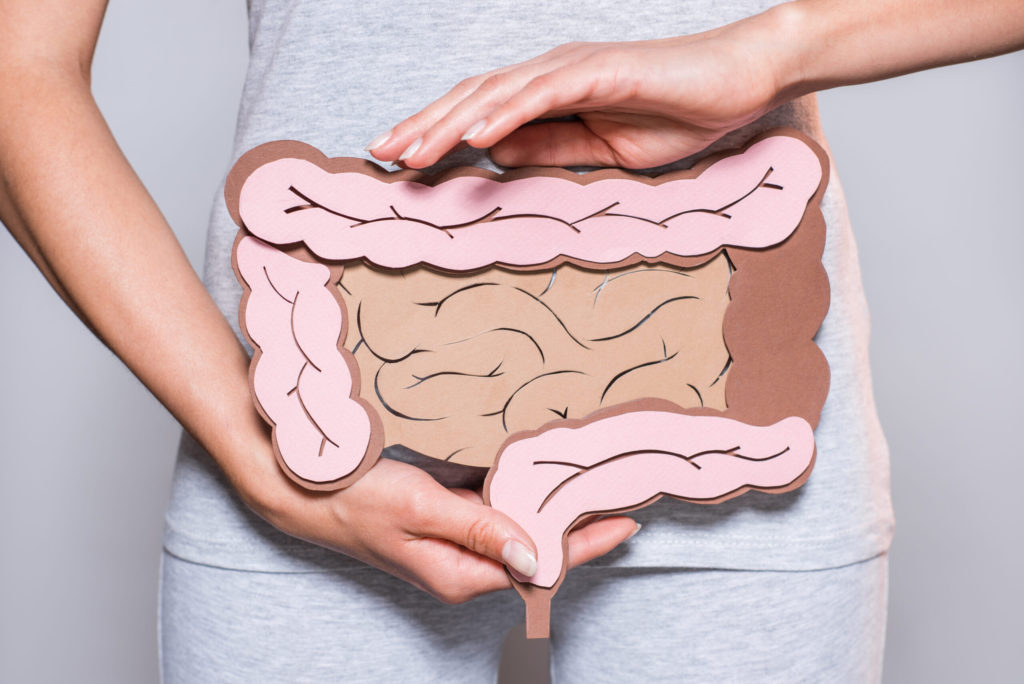The Connection Between Gut Dysbiosis and Chronic Diseases

The Connection Between Gut Dysbiosis and Chronic Diseases
Gut health is a critical indicator of a healthy lifestyle. One of the main factors in maintaining gut health is the presence of various microorganisms. These microorganisms are not harmful; on the contrary, they help sustain various digestive functions. The population of these microorganisms is influenced by various chronic diseases.
What Is Gut Microbiota?
Gut microbiota is present from birth. Approximately 500–1,000 species of microorganisms inhabit the gut, and according to some researchers, this number can reach up to 35,000 species. The types of bacteria vary depending on the morphological location and the acidity level (pH) of the gut:
- Esophagus (pH < 4): Bacteroides, Gemella, Megasphaera, Pseudomonas, and Prevotella.
- Stomach (pH ±2): Streptococcus, Lactobacillus, Prevotella, Enterococcus, and Helicobacter pylori.
- Colon: Clostridium, Prevotella, Porphyromonas, Eubacterium, Ruminococcus, Streptococcus, Enterobacterium, Enterococcus, and Lactobacillus.
- Small Intestine (pH 5–7): Bacteroides, Clostridium, Streptococcus, and Lactobacillus.
- Cecum: Lachnospira, Roseburia, Butyrivibrio, Ruminococcus, and Faecalibacterium.
Several factors, such as diseases, antibiotic treatments, and diet, influence the development of microbiota in children. Additionally, the method of delivery during childbirth impacts the differentiation of gut microbiota.
Functions of Gut Microbiota:
- Fermentation of Dietary Fiber
Microorganisms such as Bacteroides, Roseburia, Bifidobacterium, Faecalibacterium, and Enterobacteria assist in digesting and fermenting dietary fiber. - Production of Short-Chain Fatty Acids (SCFAs)
This process produces acetate, propionate, and butyrate, which are crucial for colonocyte energy and the regulation of bacterial populations. - Synthesis of Vitamins
Microbiota aid in synthesizing vitamins like vitamin B12 (by lactic acid bacteria), folate (by Bifidobacteria), as well as vitamin K, biotin, and riboflavin. - Protection Against Kidney Stones
Microorganisms such as Oxalobacter formigenes, Lactobacillus, and Bifidobacterium degrade oxalates, reducing the risk of kidney stones. - Protein and Polyphenol Metabolism
Microorganisms help metabolize proteins and break down polyphenols into active components with antimicrobial properties.
What Is Gut Dysbiosis?
Gut dysbiosis refers to the loss of beneficial microorganisms in the gut, characterized by a reduction in their number and diversity. Factors contributing to dysbiosis include:
- Diet:
A fiber-rich diet increases microbial diversity, while a diet based on animal products or high in carbohydrates affects the microbiota differently. - Infections and Inflammation:
Changes in microbiota populations can be triggered by infections like COVID-19 or the body’s antimicrobial molecules. - Antibiotic Treatment:
Broad-spectrum antibiotics can reduce gut microorganism numbers.
The Link Between Gut Dysbiosis and Chronic Diseases
Gut dysbiosis is associated with various chronic diseases, such as:
- Irritable Bowel Syndrome (IBS): Decreased Bifidobacterium and Faecalibacterium, increased Ruminococcus, Clostridium, and Dorea.
- Inflammatory Bowel Disease (IBD): Reduced Ruminococcaceae and Lachnospiraceae lead to lower butyrate production.
- Atopic Eczema: Reduced Bifidobacteria and increased Clostridia and Escherichia coli.
- Type 2 Diabetes: Decreased Bifidobacterium, Bacteroides, Faecalibacterium, Akkermansia, and Roseburia.
- Chronic Kidney Disease (CKD): Reduced Bifidobacterium, increased Enterobacter, Klebsiella, and Escherichia.
The Treatment Options:
- Prevention:
Consume at least 10 grams of dietary fiber daily. - Prebiotics:
Examples include berberine, curcumin, quercetin, and resveratrol. - Probiotics:
Supplements of microorganisms such as Lactobacillus and Bifidobacterium.
Conclusion
Gut microbiota plays a crucial role in maintaining digestive health and preventing chronic diseases. Prebiotics and probiotics offer effective approaches for managing gut dysbiosis.
Written by Nurul Izzah.
Reviewed by Doctoroncall Panel Doctor.















